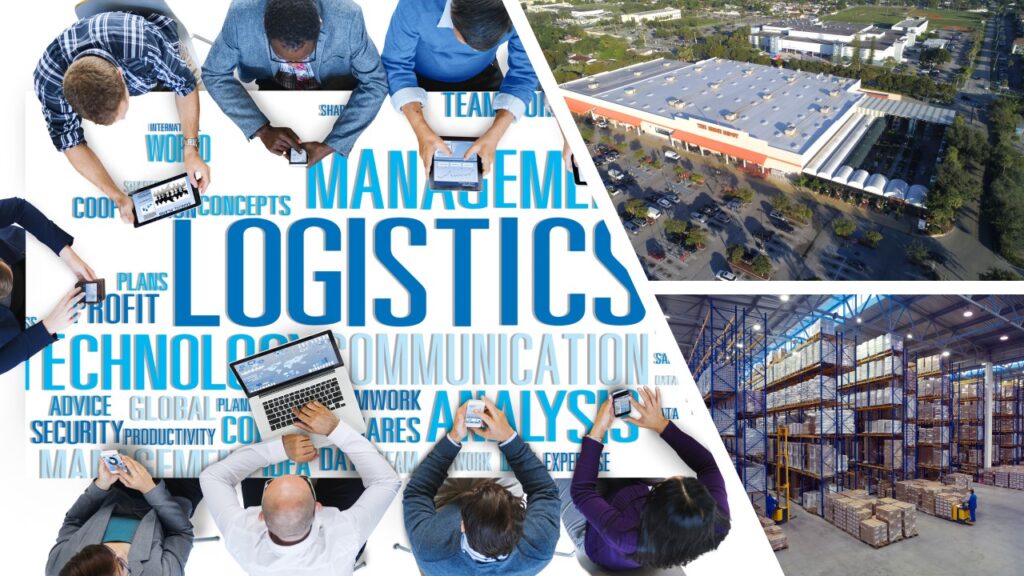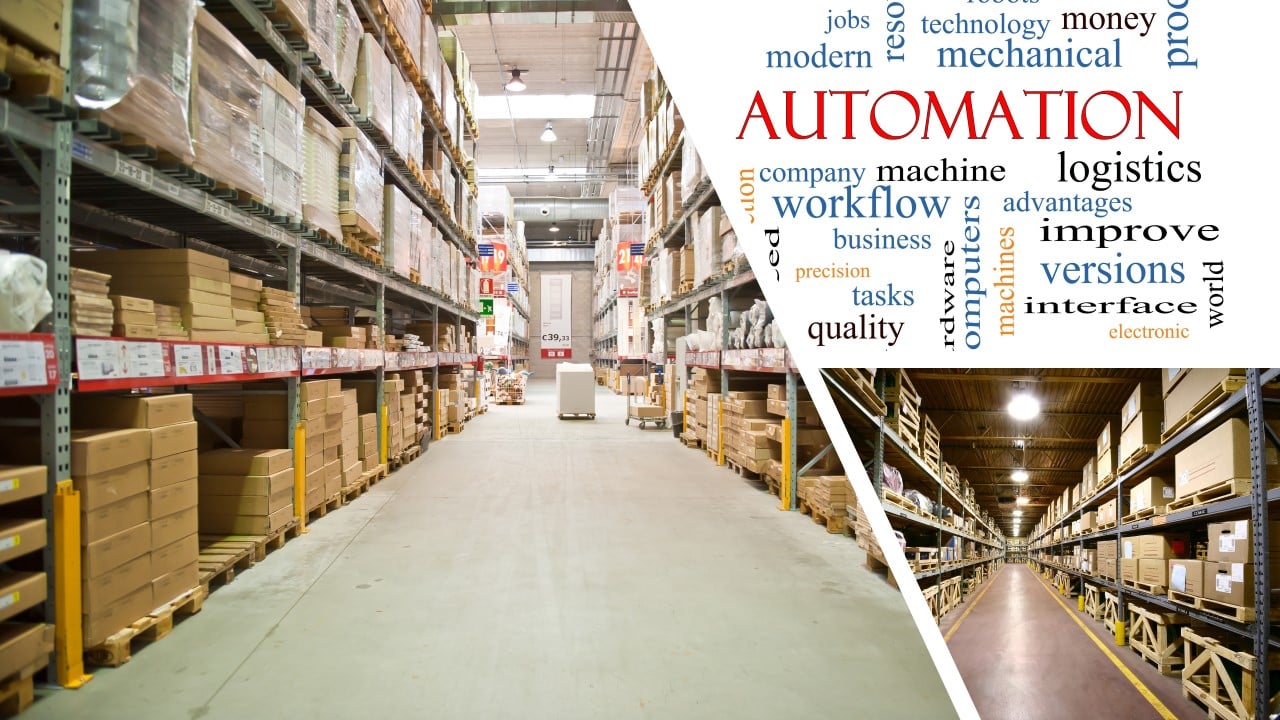
Contents:
- What is fulfilment warehousing?
- Which companies are investing in this area?
- Some technology and automation companies in fulfilment warehousing
- The rationale for investments in fulfilment warehousing
- Some success stories of successful investments in fulfilment warehousing.
- Some success drivers of fulfilment warehousing investments.
- Are we measuring the success of investments in fulfilment warehousing?
Companies like Amazon, DHL, and Walmart continue to invest in Automation, Technology and expand their warehouses to keep up with the growing demand for e-commerce fulfilment services and increase the fulfilment process’s efficiency and speed.
Logistics is an essential part of any business, and investing in fulfilment warehousing can provide numerous benefits in terms of increased efficiency, productivity, and competitiveness.
In this article, we’ll look at the rationale, drivers and some success stories of companies that have made significant investments in fulfilment warehousing.
So what is fulfilment warehousing?
Fulfilment warehousing investments refer to the construction or expansion of warehouses used for order fulfilment.
It typically includes the purchase or leasing of the land and building and the cost of equipping the warehouse with necessary materials handling equipment, storage racks, information systems and soft infrastructure.
Businesses that make these investments aim to improve the efficiency and capacity of a company’s fulfilment operations, which can help reduce costs and improve customer satisfaction.
Furthermore, there is an increase in investments in sustainable warehouses and last-mile delivery options to address the environmental impact of e-commerce fulfilment.
So which companies are investing?
Recently, many companies in North America invested in fulfilment warehousing to keep up with the growing demand for online shopping. Some examples of investments made in fulfilment warehousing in North America in 2020-22 include:
- Amazon announced plans to open a series of new warehouses, focusing on providing same-day and one-day delivery for customers.
- Walmart announced that it would invest a significant amount to build new fulfilment centres, expand existing facilities, and increase Automation in warehouses.
- DHL Supply Chain announced a $300 million investment in a new, state-of-the-art fulfilment centre in the US, which will use Automation and robotics to improve efficiency and speed.
- FedEx announced plans to open a new, high-tech fulfilment centre in the US, which will use Automation and robotics to increase the efficiency and speed of order fulfilment.
- Wayfair, an online furniture and home goods retailer, announced plans to open a large, new fulfilment centre in the US, which will use Automation and robotics to increase the efficiency and speed of order fulfilment.
- Shopify, an e-commerce platform, announced plans to open new fulfilment centres in the US, which will use Automation and robotics to increase the efficiency and speed of order fulfilment.
Many companies in the e-commerce industry in Latin America have also invested in fulfilment warehousing to keep up with the growing demand for online shopping, as it’s a common trend worldwide.
Some regional e-commerce companies, like MercadoLibre and Linio, have expanded their operations and logistics capabilities to serve customers better. Also, many logistics companies like DHL, UPS, and FedEx are investing in the region to improve the logistics infrastructure and delivery services.
In India, e-commerce and logistics companies have been making significant investments in fulfilment warehousing to meet the growing demand for online shopping. Here are a few examples of such investments made in India recently:
- Flipkart, which Walmart owns, announced that it would be investing $1.2 billion in India to build new fulfilment centres and expand existing facilities to increase Automation and improve efficiency. Flipkart announced plans to open ten new fulfilment centres in India, focusing on providing same-day and one-day delivery for customers.
- Amazon India announced plans to open ten new fulfilment centres in India to expand its reach and improve customer delivery speed. The focus is to increase Automation and robotics to improve the efficiency and speed of order fulfilment.
- Delhivery, an Indian e-commerce logistics company, announced plans to invest in building new hi-tech fulfilment centres, which will use Automation and robotics to increase the efficiency and speed of order fulfilment.
- JioMart, the e-commerce arm of Reliance Industries, announced plans to invest significantly over the next two years to build new fulfilment centres and expand its delivery network across India.
- Snapdeal announced plans to open new fulfilment centres, which will use Automation and robotics to improve the efficiency and speed of order fulfilment.
Many other e-commerce and logistics companies also recently made significant investments in fulfilment warehousing in India to meet the increasing demands of online shoppers.
Which are some technology and automation companies in fulfilment warehousing?
Several technology and automation companies specialize in fulfilment warehousing in India. Here are a few examples:
- GreyOrange: GreyOrange is an Indian company that designs, manufactures, and sells advanced robotics systems for Automation in warehouses and distribution centres. They offer a range of products, including robots and automated storage and retrieval systems, to help companies improve the efficiency and speed of their fulfilment operations.
- Intelligrated: Intelligrated is an American company owned by Honeywell that designs and installs automated material handling systems for warehouses and distribution centres.
- T-Systems: T-Systems is a German company with a presence in India. It provides IT services, logistics, and supply chain management solutions, including warehouse automation and consulting in India. They offer a range of automation solutions for warehouses and distribution centres, including warehouse management software, RFID systems, and automated storage and retrieval systems.
- Infosys: Infosys is an Indian multinational corporation that provides business consulting, information technology, software engineering, and outsourcing services. They also offer solutions to automate warehouse operations.
- Swisslog: Swisslog is a Swiss multinational company with a branch in India that provides automation solutions for warehouses and distribution centres, including automated storage and retrieval systems, conveyor systems, and warehouse management software.
- Wipro: Wipro is an Indian multinational corporation that provides IT, consulting, and business process services focusing on automation solutions for warehouses, distribution centres, and e-commerce fulfilment centres.
What is the rationale for investments in fulfilment warehousing?
E-commerce companies have invested in fulfilment warehousing to support the growing demand for online shopping. These investments have increased the efficiency and speed of order fulfilment and reached more customers across the country.
Investment in fulfilment warehousing can help companies improve the efficiency and speed of the fulfilment process, which can lead to better customer satisfaction and increased sales.
It can also help companies reduce fulfilment costs and improve delivery times.
In India, the e-commerce industry has been expanding in the past few years, driven by the increasing penetration of the internet and smartphones and the changing consumer behaviour.
The e-commerce industry has created a massive demand for e-commerce fulfilment services. Companies that have invested in fulfilment warehousing have been able to leverage this trend and grow their business.
Additionally, companies like Amazon, Flipkart, Bigbasket and Delhivery have been expanding their fulfilment centres and investing in Automation and technology, which will increase their warehouse efficiency and speed of order delivery. Improved efficiency would help them to sustain their growth and stay competitive in the market.
Some success stories of successful investments in fulfilment warehousing.
Many companies have seen success with investments in fulfilment warehousing due to the growing demand for online shopping. Some examples of success stories include:
Amazon has built a network of over 175 fulfilment centres worldwide, allowing them to offer fast and efficient delivery to their customers. This investment in their fulfilment network has been a critical factor in their success and has helped them become one of the largest e-commerce companies in the world. According to a report by Forbes, Amazon’s investment in logistics infrastructure, including warehouses, delivery networks, and logistics technology, has been a significant driver of the company’s growth in recent years.
DHL, one of the world’s leading logistics companies, made significant investments in automation technology for their warehouses in recent years. The initiative includes implementing robotic systems and automation technology to increase efficiency and productivity. According to a case study by McKinsey, DHL’s investments in automation technology have led to a 15-20% increase in productivity in their warehouses. The initiative has helped DHL stay competitive in the logistics industry and continue to grow its business.
Walmart is another notable example of a company that has successfully invested in fulfilment warehousing. They have built multiple fulfilment centres specifically for online orders and have implemented technology like augmented reality to improve the picking process. According to a report by Business Insider, Walmart’s investment in e-commerce and logistics infrastructure has helped the company increase its online sales and better compete with other e-commerce companies.
Retail company Zara invested in a new fulfilment centre in Spain that uses RFID technology to track inventory in real-time. This fulfilment centre has allowed them to quickly respond to trends in customer demand and avoid stockouts, which has helped them maintain their position as a leader in the fast fashion industry.
What drives the success of fulfilment warehousing investments?
Here are some of the critical drivers of success for investments in fulfilment warehousing, not in any particular order:
- Location: Businesses need to choose the location of their warehouse to minimize transportation costs and maximize accessibility to customers. Proximity to major population centres and transportation hubs: This allows for quick and efficient delivery of products to customers.
- Infrastructure, including Automation and technology: Automated systems can significantly increase efficiency and accuracy in the warehouse. Implementing Automation and technology such as robots and automated storage and retrieval systems can increase efficiency and reduce labour costs. Utilizing information technology such as warehouse management systems and real-time tracking can increase visibility and control over inventory and operations.
- Robust logistics and supply chain management processes: This includes having efficient systems in place for receiving, storing, and shipping products, as well as tracking inventory and monitoring performance metrics.
- Solid partnerships and relationships with suppliers and customers can help ensure a consistent flow of products and customers.
- Skilled and Motivated Workforce: An experienced and motivated workforce is crucial for maintaining efficient operations.
- Security: Implementing security measures to protect the facility, employees, and inventory is essential.
- Scalability of hard and soft infrastructure: The warehouse should be able to scale up or down as needed to meet changes in demand.
- Flexibility: The warehouse infrastructure needs to be flexible enough to handle a variety of products, storage requirements and changing customer needs.
- Sustainability: Adopting sustainable practices and investing in renewable energy can help to reduce environmental impact and costs.
Are we measuring the success of investments in fulfilment warehousing?
Depending on the company and the specifics of its investment, the success of a fulfilment warehousing investment can be measured in different ways, such as improved delivery times, increased sales, cost savings, and more.
Measuring success in fulfilment warehousing is crucial for investors and operators to understand the efficiency and effectiveness of their investments. It helps identify areas for improvement and highlights the ROI of specific initiatives. It allows for data-driven decision-making and helps ensure the continued success of the warehouse operation.
In conclusion, investing in fulfilment warehousing can significantly improve the supply chain’s efficiency, productivity, and competitiveness.
Whether you’re a large e-commerce company or a small business, investing in fulfilment and warehousing can help you meet the demands of your customers and reach new heights of success.
It’s, however, essential to conduct a thorough analysis of your specific needs and goals and then make informed decisions about where and how to invest in fulfilment warehousing.
I share insights to help business owners and corporate executives in transition achieve more clarity.
Please feel free to check out more insights from Apex Group http://apex-insights.com/
You can also connect with me on LinkedIn here.






